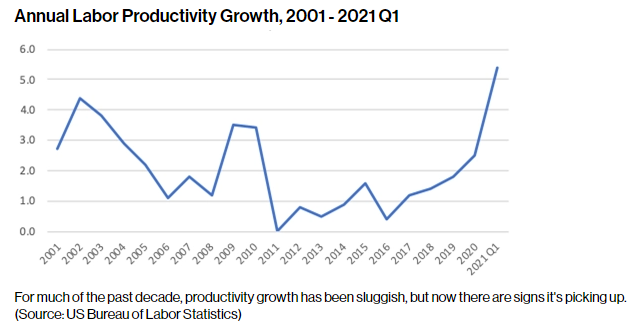Guy Haworth RIP
Guy died on Wednesday, after suffering a severe stroke a few days earlier. He was an eminent academic (with about 55 papers to his name), an expert on chess programming and an historian of systems engineering as a discipline.
In the late 1960s he and I shared a lovely sub-basement office in the Cambridge Control Lab when we were graduate students. He was a much better student than I was, and I always had the feeling that he thought I was a little weird. (Perfectly understandable: I was probably the only graduate student in Engineering who went to Raymond Williams’s lectures in Sidgwick Avenue!) But he was always genially tolerant of my eccentricities and I liked him a lot.
After we left Cambridge we lost touch for a while, and then I discovered that he was a dedicated follower of this blog. He was a very sharp and perceptive reader too — I have a nice little trove of short emails from him that would arrive first thing in the morning alerting me to a typo, or a glaring error, or adding something useful to my inadequate store of knowledge. And he was always as non-judgemental as he had been when we were graduate students together.
In March this year, for example, I posted a photograph of Trinity Lane in Cambridge and observed that Vladimir Nabokov’s room had overlooked the lane when he was a student in Trinity. Back came an email from Guy pointing out that the lane had also been used by Pasolini when he was filming the Miller’s Tale — something I wouldn’t have known in a million years. The last email came on April 23 after he had spotted a claim in Memex of the day before that Joe Biden had “dominated” Lina Khan, when of course I meant that he had nominated her for the FTC.
He was the kind of reader that every blogger dreams of having — fiercely intelligent, well-informed and generous. I was lucky to have known him. May he rest in peace.
Quote of the Day
Katherine Hepburn, on meeting her co-star in a new film for the first time:
”I’m a little too tall for you, Mr Tracy.”
Spencer Tracy
”Never mind, Miss Hepburn, I’ll soon cut you down to size.”
Musical alternative to the morning’s radio news
Handel: | “As steals the morn” | Amanda Forsythe and Thomas Cooley | Voices of Music
I love Handel, but didn’t know this aria.
Voices of Music is a non-profit artists and teachers dedicated to: performing and recording music composed before the year 1800; affordable educational programs for children and adults; advanced training for young professionals; and community outreach. There’s a donation link which I recommend.
Long Read of the Day
A virtuous cycle of worker power and technology?
What if higher wages drive faster productivity growth?
Recently, pondering the mystery of why the pandemic doesn’t seem to have been as economically devastating as we expected, I chanced on this essay by Noah Smith.
The other day I ordered at a restaurant on my smartphone. No waiter came by to ask me if I was ready to order. I scanned a QR code on a piece of paper taped to a wooden post; this brought up the menu on my phone, and I simply indicated what I wanted. As if by magic, a server appeared a few minutes later with the food. During my meal, no one wandered by to ask me if I “was still working on that”; when I wanted more food, I just used my phone again. I’m sure I’m one of many millions of Americans who’s learning to order food this way, as a result of the understaffing and social distancing rules imposed by the Covid pandemic.
While I was ordering this way, I kept thinking over and over that this shift is a real game-changer in terms of productivity. Let people order food on their phones, and the number of wait staff you need to deliver the same service goes way down. It’s barely more onerous for the customer if at all, and it eliminates the need to have human beings constantly sashaying around the establishment, eyeing how much diners have eaten.
Which is why he wasn’t too surprised when he saw this chart of how productivity appears to be rising sharply…
So then he starts to reflect, in his characteristically thoughtful way, on the possible reasons for this.
Read on to follow his reasoning. It’s worth the journey.
Edward de Bono RIP
I could never decide whether he was a genius or a charlatan. I enjoyed some of his books in the way I enjoyed the books of Roald Dahl. Some of his former colleagues in the Cambridge Medical School, however, seemed to be in little doubt about the question (which might have been influenced by the fact that his earnings were hundreds of times theirs!).
This Guardian obit by Stuart Jeffries is nicely balanced, as obituaries should be.
He was rarely burdened with humility, informing the world that his childhood nickname was “Genius”. By contrast, he did not suffer detractors gladly. Years after a stinking review of Six Thinking Hats appeared in the Independent, written by Adam Mars-Jones, De Bono told the Guardian: “That book, we know, has saved $40m dollars and tens of thousands of man-hours. Now, some silly little idiot, trying to be clever, compared to the actual results, that just makes him look like a fool.”
Mars-Jones retorted that when his review appeared, De Bono “wrote to the editor [saying] … that he was entitled to compensation for the loss of earnings which my comments had inflicted on his lecture tours (which he assessed at £200,000). He seemed less taken with my proposal that he pay a dividend to every journalist who, by taking him seriously, had inflated his earning power.”
At last, the Onion takes Bloomsday seriously
From yesterday’s edition:
DUBLIN—Professor Hanlon O’Faolin, once called “mad” at the Royal Irish Academy for attempting to reanimate the traditional body of Celtic folktales with the power of elcectic multilingual puns, is readying his apoplectic Bloomsday Device for activation on June 16. “Yes! Yes, they laughed at me yes but now yes I will make them pay and yes!” O’Faolin wrote in a letters to the Irish Times, promising the destruction of Dublin on the same day portrayed in Joyce’s Ulysses. “When the sun first strikes the Martello Tower, the first notes of ‘The Rose of Castille’ shall ring out, the streets shall run with rashers, kidneys, and sausages, and I shall forge in the smithy of Dublin’s soul the uncreated conscience of my race!” Dublin police say they are working around the clock from profiles to create a portrait of the professor as a crazy man.


